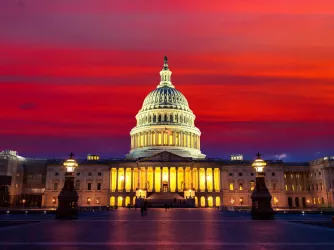Table of Contents
Universities on the Cusp of a Better Speech Code Rating, Part 2: Purdue University
Last week, we kicked off a blog series about colleges and universities that are just one policy away from dropping their poor, “red light,” speech code ratings. At the end of every September, FIRE finalizes the data for our annual speech code report, which is released in early winter. So if a university has a red light rating on September 30, it will fall into the red light category for the forthcoming speech code report, and any policy changes that happen after that date will affect its rating in the following year’s report. It is our hope that the colleges and universities featured in this series will make the necessary changes in time to have an improved speech code rating listed in this year’s report. This week’s featured school is Purdue University. Purdue’s Electronic Mail policy provides that “the following specific actions and uses of University E-mail Facilities are improper: … Use of e-mail that degrades or demeans other individuals” (emphasis added). The policy defines “University E-Mail Facilities” very broadly to include all facilities, technologies, information resources, and computing and electronic communication devices, hardware, software, and services required to accomplish the processing, storage, transmission, and communication of electronic mail, whether individually controlled or shared, stand-alone, or networked. So by the policy’s plain language, it applies not only to messages sent using an official university email account but also to email from outside accounts sent over the university’s networks (such as from a dorm room connection). A prohibition on “degrad[ing]” or “demean[ing]” communication is unconstitutionally overbroad. A policy is overbroad if in addition to its legitimate restrictions (such as the policy’s prohibition of harassment and threats), it also restricts a substantial amount of constitutionally protected expression. While degrading or demeaning expression might offend members of the campus community, it is protected expression under the First Amendment unless it rises to the level of, for example, harassment or defamation. Indeed, the principle of freedom of speech does not exist to protect only uncontroversial or polite speech; indeed, it exists precisely to protect speech that some members of a community may find offensive. Recognizing this, the Supreme Court stated in Texas v. Johnson, 491 U.S. 397, 414 (1989), that “[i]f there is a bedrock principle underlying the First Amendment, it is that the government may not prohibit the expression of an idea simply because society finds the idea itself offensive or disagreeable.” Similarly, the Court wrote in Papish v. Board of Curators of the University of Missouri, 410 U.S. 667, 670 (1973), that “the mere dissemination of ideas—no matter how offensive to good taste—on a state university campus may not be shut off in the name alone of ‘conventions of decency.’” Fortunately, the solution is simple: The university can simply remove this example from its list of prohibited conduct. Indeed, other universities have revised policies just like this one. In 2010, FIRE wrote to the University of Tennessee—a “green light” school—after learning that its information technology policy had been revised to include a prohibition on degrading or demeaning communications. Fortunately, the university acted quickly to revise that policy and preserved its green light rating. While Purdue still has a number of “yellow light” speech codes on its books, it could earn a greatly improved yellow light rating just by revising this one policy. We will keep you posted!
Recent Articles
FIRE’s award-winning Newsdesk covers the free speech news you need to stay informed.

One day after FIRE lawsuit, Congress passes changes to filming permits in national parks

VICTORY: FIRE lawsuit leads California to halt law penalizing reporters, advocates, and victims who discuss publicly known information about sealed arrest records

O holy fight: New Hampshire Satanic Temple statue threatened by more than vandals
